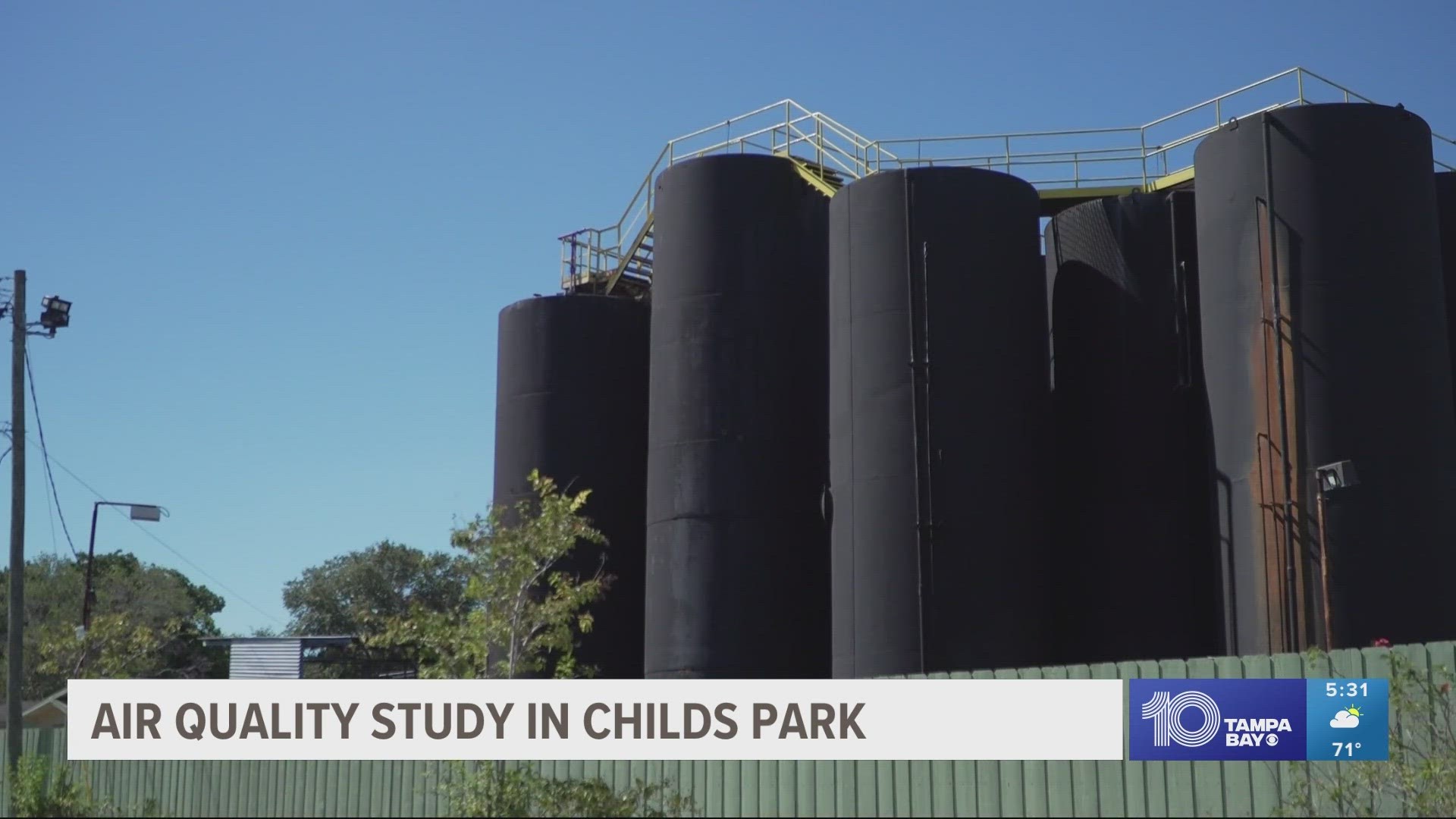ST. PETERSBURG, Fla. — People living in the Childs Park community have concerns about their air quality because of a certain smell that lingers.
For years, those living in the St. Petersburg neighborhood have expressed concerns about a smell they believe could be dangerous for their health. So, researchers from USF and Eckerd College are partnering with the community to get air samples and see if there are hazardous pollutants in the area.
"There have been issues for decades here in Childs Park surrounding air quality," the President of the Childs Park Neighborhood Association, Jabaar Edmond, said.
The smell has been described as eggy, rubbery and a burning smell. Edmond has grown up in Childs Park and said many of his neighbors have health concerns.
"The biggest concern is air quality, safety and the quality of living," Edmond stated.
He explained there is a school in the area and a YMCA, which amplifies concerns.
"There have been neighborhood concerns around health breathing issues for decades," Edmond added.
Those living in the area believe a nearby factory is to blame for the smell. Researchers said that could be a possibility, but there's not enough data to point fingers yet.
"Not everything that smells is toxic, however, it is the residents' right not to be subjected to smells day in and day out," a Professor of Chemistry at Eckerd College, Polina Maciejczyk, said.
To determine if the smell is dangerous, researchers from USF and Eckerd College are measuring hazardous air pollutants. Researchers have been a part of this for the past three years.
Scientists explained the community has been a big help. Some people have offered to have air monitors at their house and others have walked blocks with researchers holding monitors to help collect data. City officials in St. Petersburg have purchased air monitors to help with the research.
"There is definitely something unusual happening because we’re comparing this neighborhood to Disston Heights," Maciejczyk said.
Disston Heights is the control area. In Childs Park, scientists have seen spikes in certain air pollutants, but to determine if the air quality is dangerous or not, researchers need more data.
"We are still at that stage that yes we collected the data and all we can say is that we need more data," Maciejczyk said.
Researchers are working alongside the community in hopes that more data will lead to answers.
"Hopefully over the years we’ll be able to bring some change, some impactful change to Childs Park," Edmond said.
Researchers said they plan to collect more data in November.

